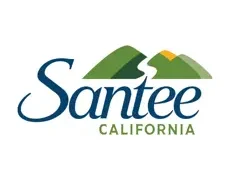
Managing grants continues to be an important aspect for foundations looking to fulfill their goals effectively. With the evolving environment come emerging trends and technologies that influence how organizations handle and allocate funds. Being aware of these developments enables foundations to improve their operations and enhance their impact.
Embracing the Progress of Technology
The progress of technology is crucial in reshaping the management of grants. It is observed that grant management software for foundations simplifies duties by facilitating the management of data and enhancing transparency. Automation helps minimize mistakes and provides more time for strategic tasks. Besides that, data analysis provides information on the results of funding to support informed decision-making processes.
Investment in technology makes it easier to track grant applications, ensuring accountability and compliance standards are met consistently and reliably. Additionally, digital platforms improve communication channels between grant providers and recipients, encouraging collaboration and fostering partnerships. This leads to a grant management process that’s more dynamic and responsive to demands.
Transitioning to Approaches that Focus on Making an Impact
Grant management foundations are now placing importance on impact-driven approaches rather than solely focusing on financial aspects like before. There’s a shift towards measuring and showcasing impact to highlight the outcomes of their strategies.
Establishing a results-driven framework requires defining goals and evaluating advancement using benchmarks. This method guarantees the allocation of resources to tackle societal issues. Nonprofits gain from embracing outcome-focused strategies as they offer proof of accomplishments, resulting in credibility and increased backing.
Emphasizing Fairness and Diversity
The emphasis placed on equity and inclusion has impacted the way foundations manage grants today. Acknowledging the significance of tackling disparities and expanding the pool of recipients for funding is becoming increasingly crucial. This change requires a reevaluation of criteria and structures to guarantee the representation of marginalized communities.
Communities must be involved and their specific obstacles acknowledged to put grant-giving practices into action. By integrating fairness aspects, foundations promote equality and bring about enduring transformation. This dedication not only aids groups but also enhances the foundation’s purpose by embracing a variety of viewpoints.
Boosted Alliances
Effective grant management now relies heavily on collaboration and partnerships. Foundations can enhance their impact by partnering with organizations to pool resources and expertise effectively. Sharing knowledge and fostering innovation through initiatives leads to the development of enduring solutions.
Partnerships go beyond providing support; they involve shared objectives and reciprocal assistance. By working together, foundations can tackle intricate challenges holistically, nurturing a feeling of unity and a common mission. This joint endeavor results in more results, bringing advantages to both donors and those receiving grants.
Harnessing data to make informed decisions
Utilizing data to make informed decisions is becoming increasingly important in overseeing grants. Having access to data allows foundations to assess programs impartially, pinpoint areas for improvement, and enhance their strategies. Data analysis tools help gather and make sense of volumes of information, offering perspectives.
By using data analysis methods to evaluate the impact of supported projects and making modifications accordingly, foundations can improve their oversight and guarantee that resources are allocated to meaningful endeavors. Employing data-centric approaches enables foundations to adapt quickly and effectively to changing demands, thus optimizing their impact and contributions.
Navigating Through Regulatory Adjustments
Changes in regulations impact how grant management operates over time for foundations. It is crucial for them to keep up to date with the mandates to ensure adherence and steer clear of possible issues. Being prepared for these alterations involves taking steps like revising protocols and processes.
Knowing the rules and regulations governing foundations is important to ensure that they comply with the law and achieve their goals effectively. Keeping up with any updates promotes openness and responsibility, which helps build trust with the public. By dealing with issues, foundations can protect their work and continue successfully supporting their communities.
Conclusión
The upcoming developments in grant management for foundations offer both thrilling possibilities and obstacles to overcome ahead of us all. Taking advantage of advancements while prioritizing impact and fairness are approaches for achieving success. By adjusting to evolving environments and utilizing data-driven information effectively, foundations can amplify their efforts.













Discussion about this post